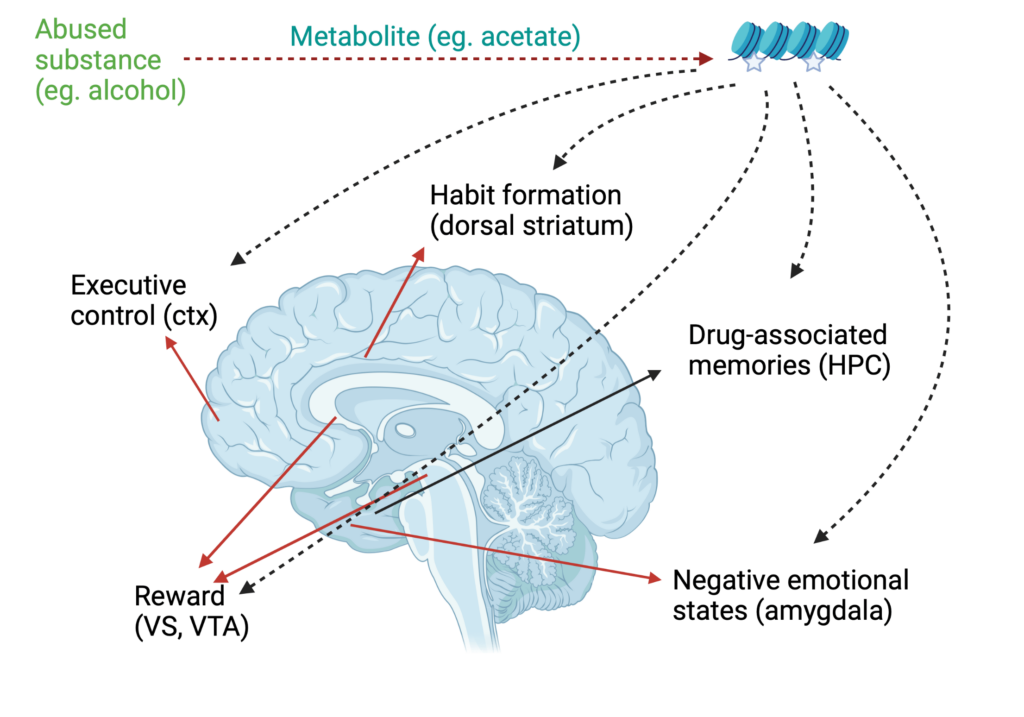
Gabor Egervari, MD, PhD
Assistant Professor of Genetics and Biochemistry
- Email: gabor@nospam.wustl.edu
Egervari Lab | Google Scholar Profile
Bio
Dr. Gabor Egervari completed his medical training at the Semmelweis University in Hungary and obtained a PhD in neuroscience from the Icahn School of Medicine at Mount Sinai in New York. In Dr. Yasmin Hurd’s lab, he studied the effects of long-term heroin use on the neuroepigenome in post-mortem human brains and rodent models of heroin self-administration. Gabor then completed his postdoctoral training with Dr. Shelley Berger at the University of Pennsylvania, where he studied the role of nuclear metabolic enzymes in gene regulation. Dr. Gabor Egervari’s laboratory explores the role of metabolic-epigenetic interactions in the healthy and diseased brain, with particular emphasis on substance use disorders and neurodegeneration.
Research
Metabolic-epigenetic interactions in the healthy and diseased brain

My research program aims to understand how metabolic changes influence gene expression in the brain. Specifically, I investigate the recruitment of metabolic enzymes to the nucleus and to chromatin in different brain regions and different cell types. I am particularly interested in examining the role of these pathways during exposure to harmful stimuli, such as abused substances. Research in my laboratory will explore how metabolites of drugs affect epigenetic regulation in the brain, and how this contributes to transcriptional changes that underlie substance use disorders and developmental exposure to drugs. In addition, my lab will study the role of metabolic-epigenetic interactions in neurodegeneration, where epigenetic changes are quickly emerging as an important novel disease mechanism. By examining these fundamental biological processes, my research program will have the potential to uncover novel therapeutic targets for substance use disorders, fetal alcohol spectrum disorder and neurodegeneration.
Mentoring
We welcome researchers at all levels to join our lab located in the Department of Genetics in Couch Biomedical Research Building! We are committed to a diverse, collaborative and equitable work environment where every member can thrive and grow. If you are interested in joining or a rotation, please send me an email at gabor@wustl.edu.
Our lab utilizes cutting-edge proteomic, metabolomic and genomic approaches, including on the single cell level, to understand how metabolites influence chromatin and gene expression in the brain. Further, we apply mouse behavioral models and in vitro mechanistic studies to query the role of these pathways in disease and to identify novel therapeutic targets.
We offer an excellent training environment and outstanding opportunities to develop independent research projects at the exciting intersection of translational neuroscience, epigenetics, and metabolism.